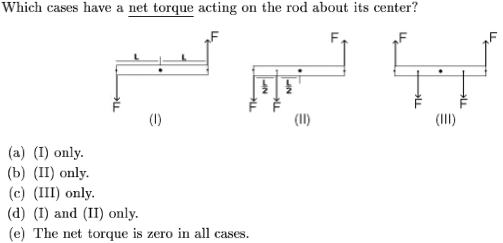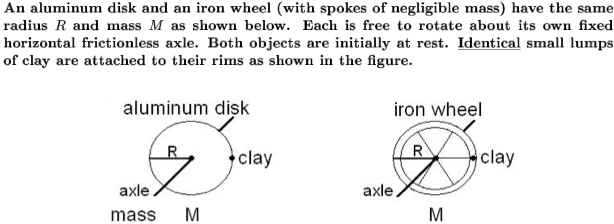Developed by Chandralekha Singh and Lorenzo G. Rimoldini
| Purpose | To assess students’ understanding of rotational and rolling motion concepts typically covered in a typical introductory physics course. |
|---|---|
| Format | Pre/post, Multiple-choice |
| Duration | 50 min |
| Focus | Mechanics Content knowledge (rotational kinetic energy, torque, rotational kinematics, moment of inertia) |
| Level | Intro college, High school |
Sample questions from the RRMCS:


RRMCS Implementation and Troubleshooting Guide
Everything you need to know about implementing the RRMCS in your class.
Login or register to download the implementation guide.
more details
This is the second highest level of research validation, corresponding to at least 5 of the validation categories below.
Research Validation Summary
Based on Research Into:
- Student thinking
Studied Using:
- Student interviews
- Expert review
- Appropriate statistical analysis
Research Conducted:
- At multiple institutions
- By multiple research groups
- Peer-reviewed publication
The multiple-choice questions on the RRMCS were developed using student ideas from demonstration-based interviews. The questions were revised through expert review, additional student interviews and analysis of results after giving the test to a large number of students. Appropriate statistical analyses of reliability and discrimination were conducted, and the RRMCS was found to have good reliability and discrimination. The RRMCS has been given to over 3000 students in algebra-based, calculus-based, honors and upper-level courses and the results are published in one peer-reviewed publication.
References
- L. Rimoldini and C. Singh, Student understanding of rotational and rolling motion concepts, Phys. Rev. ST Phys. Educ. Res. 1 (1), 010102 (2005).
We don't have any translations of this assessment yet.
If you know of a translation that we don't have yet, or if you would like to translate this assessment, please contact us!
| Typical Results |
|---|
Typical Scores from Rimoldini and Singh 2005: The average test scores in non-honor introductory (n=669) and upper-level (n=17) classes ranged from 44% to 61%, while a class of freshman honor students (n=93, required to have a QPA of 3.5 or better) scored 75% on an average. |
The latest verion of the RRMCS, released in 2005, is version 1.



